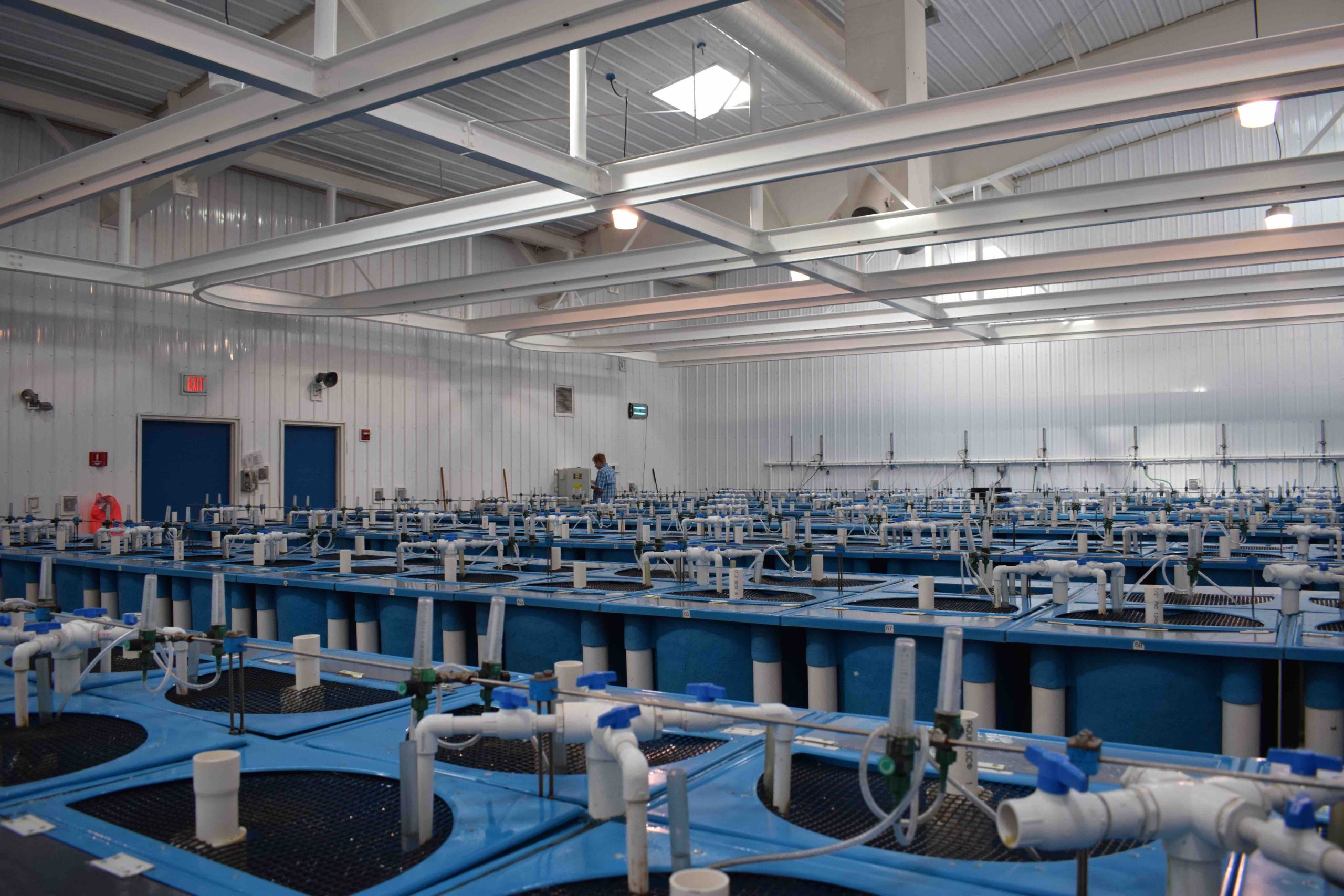
Aquaculture Research Institute Awarded $2.25 Million for Recirculating Aquaculture Systems Research
ORONO, Maine – The Aquaculture Research Institute has been awarded $2.25 million per year of congressional programmatic funding from the United States Department of Agriculture Agricultural Research Service (USDA-ARS) for research on Recirculating Aquaculture Systems at the National Cold Water Marine Aquaculture Center.
Recirculating Aquaculture Systems (RAS) represent an increasingly important technology in the field of aquaculture. These land-based culture systems not only boost production and strengthen domestic aquaculture, but also reduce dependence on coastal ecosystems and enhance resilience to changing environmental conditions. With innovative research and effective management, RAS operations have the potential to revolutionize the way we think about sustainable aquaculture.
In conjunction with an existing USDA-ARS Non-Assistance Cooperative Agreement (NACA), this new funding will help establish ARI as a nationally recognized RAS research facility, focusing on shellfish and finfish species. Prioritized research includes the development of domestic broodstock, sustainable alternative feeds, the impacts of climate change, innovations in waste processing, reduction of environmental impacts, elimination of off-flavor compounds like geosmin and 2-methylisoborneol (MIB), and overall more energy efficient systems at the Center for Cooperative Aquaculture (CCAR).
“We’re committed to expanding our knowledge and expertise in RAS to culture fish and shellfish in a way that’s productive and profitable, while ensuring the highest standards of animal well-being. The goal here is to optimize production, efficiency and sustainability” explains Deborah Bouchard, Director of the Aquaculture Research Institute.
This $2.25 million in funding represents a significant investment not only for the future of the RAS industry but for workforce development as well. Several new full-time positions have been created through both ARI and USDA-ARS, enhancing infrastructure at CCAR and expanding the facility’s capabilities for cutting-edge research and development.
“This will allow ARI and USDA to continue work on improving Atlantic salmon reproductive inefficiencies. Low eye-up rates have plagued the salmon industry for the past 15 years. A new reproductive physiologist will be hired that will address these inefficiencies. In addition, a new fisheries biologist will be hired that will address off-flavor and water quality as it relates to salmon grown in RAS,” says Brian Peterson, Director National Cold Water Marine Aquaculture Center.
Ultimately, this will lead to a more sustainable and profitable future for the domestic aquaculture industry while making high-quality protein more accessible.

